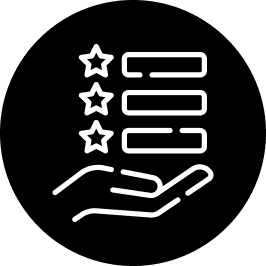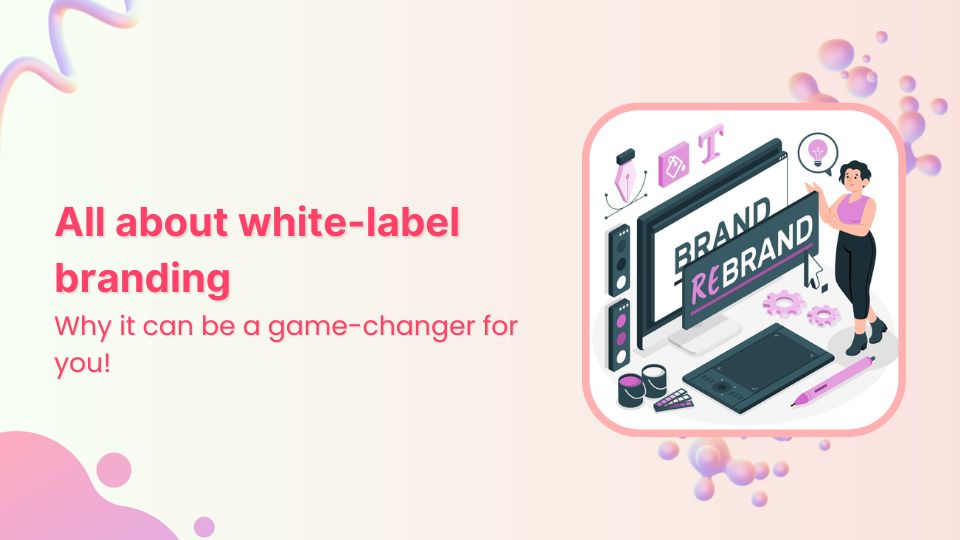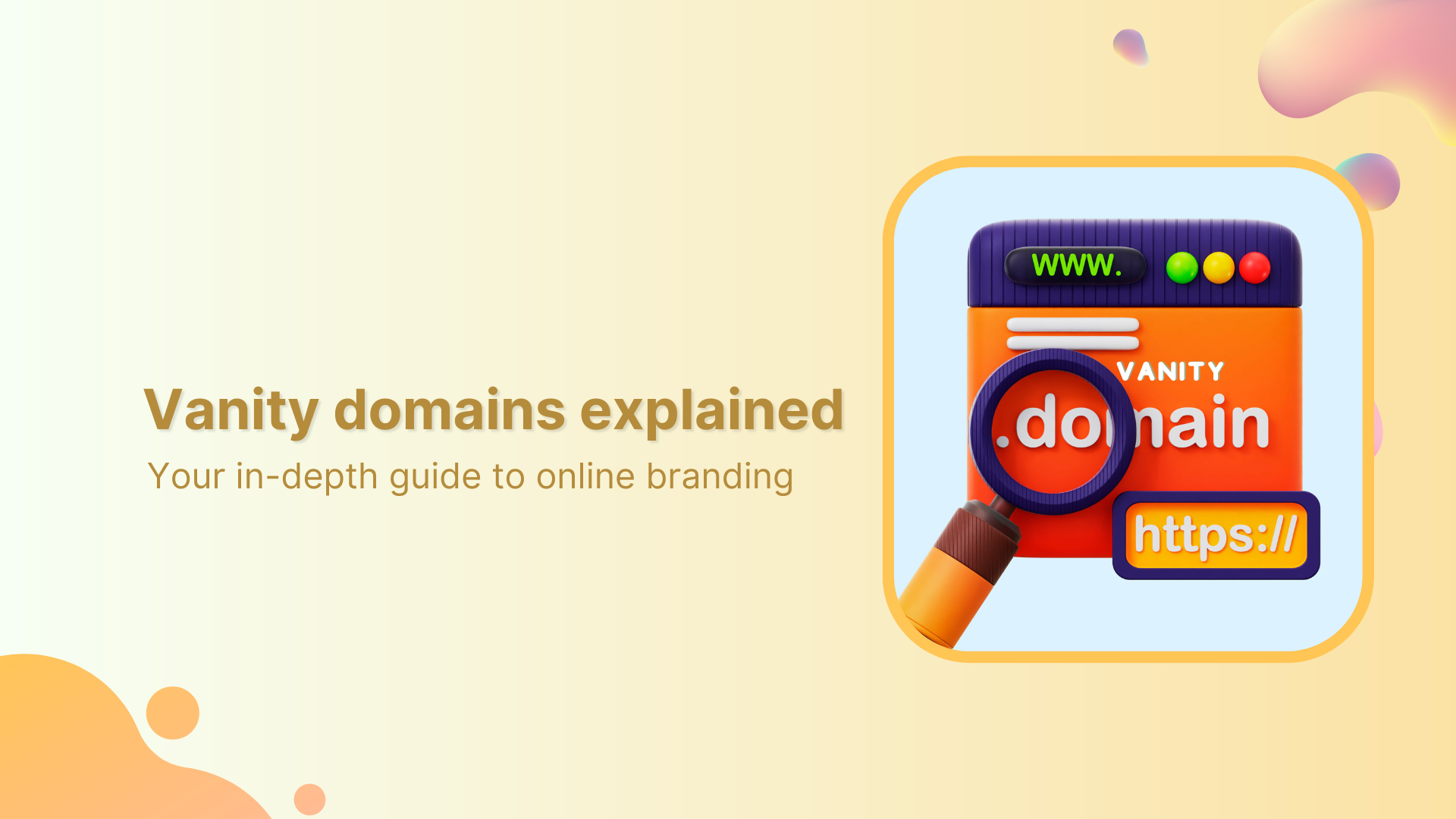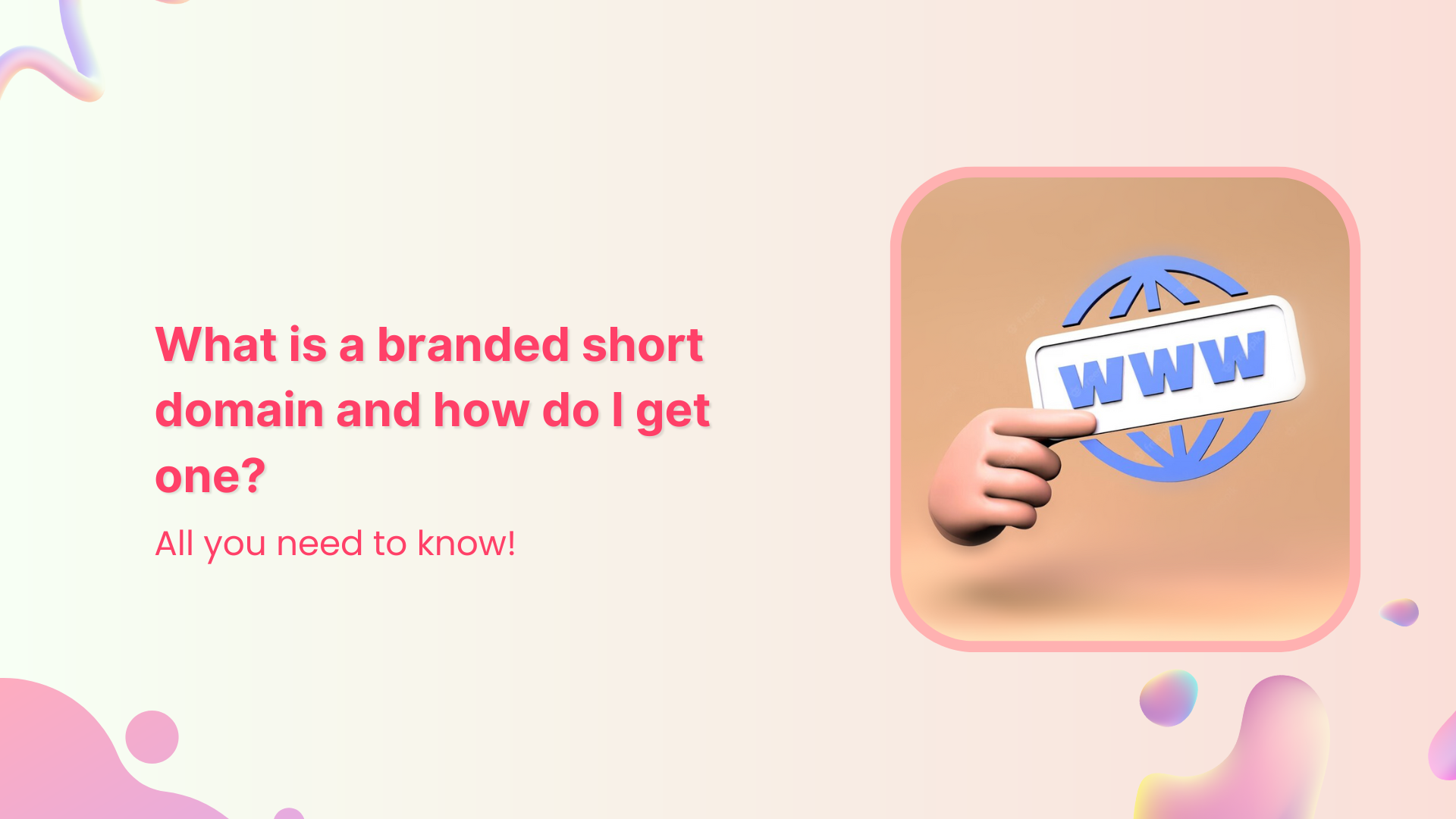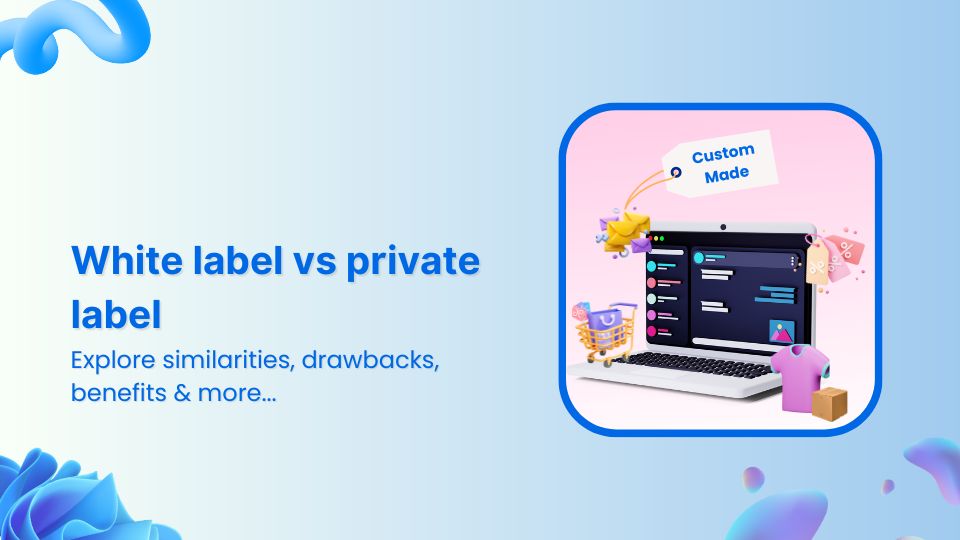Looking to broaden your services without blowing your budget? White-label branding is the solution you’ve been searching for!
It saves you from costly and time-consuming development hassles by allowing you to customize a ready-made SaaS solution and more in no time.
Whether you need automation tools, customer management platforms, or sleek reporting tools for your client’s website data, white-label has got you covered.
This guide will walk you through how white-label branding can be a game-changer for your business!
What is white-label marketing?
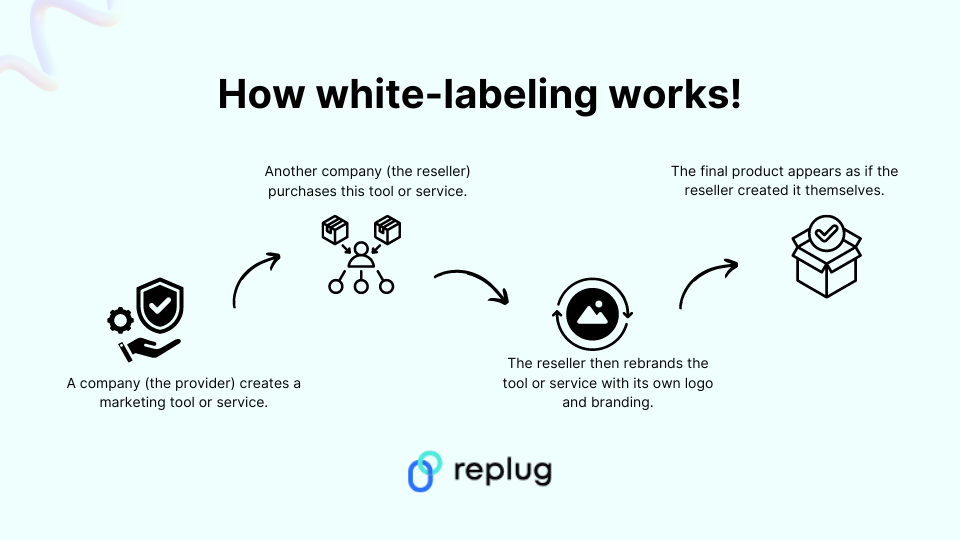
White-label marketing or white-label branding refers to using marketing products or services developed by one company and then rebranding them under your company’s name.
Let us simplify for you:
How white-labeling works!
A company (the provider) creates a marketing tool or service. Another company (the reseller) purchases this tool or service.The reseller then rebrands the tool or service with its logo and branding.The final product appears as if the reseller created it themselves.
Related: A Complete Guide to Building a Brand Marketing Strategy
What is white-label software?
White-label software is known as software developed by one company which is then remarketed and resold by another. Here are some common types of white-label software:
White-label marketing softwares
- Social media marketing
- Branded link management tools
- SEO tools
- Email marketing tools
- Analytics and reporting tools
Design, programming, or management products
- Landing page builders
- UI/UX design kits
- Content management systems (CMS)
- Project management tools
- Customer relationship management (CRM)
What features does a white-labeling tool offer for branding customization?
An advanced custom link branding white-label tool allows you to take a pre-built software and rebrand it as your own. But it’s not just about looks – it’s about boosting your click-through rates and supercharging your marketing, e-commerce, or affiliate strategies.
Consieder Replug for branding & customization
Beyond just customizing the logo, color scheme, fonts, domain name, and login screen, the platform offers: URL shortening, Bio-link pages, Retargeting pixels, Deep links, Custom CTAs, Link rotator, QR codes, Link analytics and branded reports. With these powerful features, a white-label tool becomes your go-to for not just rebranding, but for making the most out of your brand
Link Management Made Easy
Your go to link management tool for CTAs, branded and bio links, QR Codes, tracking and retargeting.
Get Started for FREE!
What are the core benefits of using a white-label tool?
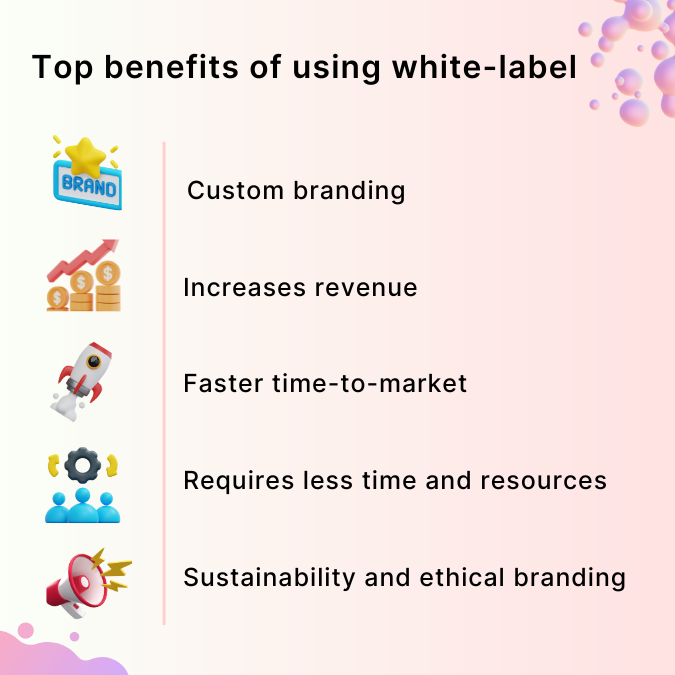
White-label solutions are tried and tested, eliminating the risks of any errors or security concerns while developing new in-house software. Besides that, you get so many other benefits including the following.
1. Faster time-to-market
In business, timing is everything. You can’t afford to wait months or even years for a custom-built solution. White-labeling tools let you hit the ground running. It’s like skipping the line at the theme park – you enjoy the ride while others are still waiting in line to build theirs.
2. Add your custom branding
Just because it’s not custom-built doesn’t mean it can’t feel like it’s yours. White-labeling tools are like blank canvases waiting for your artistic touch. You can customize them to fit your brand and make them feel like they were tailor-made just for you.
3. Save money
Building software from the ground up is like constructing a house – it’s expensive! With a white-label tool, it’s like buying a house that’s already built. Sure, you might need to do some decorating to make it your own, but it’s way cheaper than starting from scratch. Working with a nearshore outsourcing service company can help you tailor these solutions efficiently while keeping development costs manageable.
4. Focus on core business
Utilizing white-label tools allows you to free up your team’s time and resources to focus on your core business activities. Besides that, you’re good at what you do, whether it’s selling widgets or providing services. You don’t need to become a software developer overnight. With white-label tools, you can focus on what you do best while leaving the tech stuff to the tools. For more complex or unique needs, partnering with a custom software development company can offer tailored solutions that align perfectly with your business objectives.
These are just some of the core benefits. In the next section, we can explore some specific examples of how white-label tools can be used in different industries.
Who can benefit from white-label marketing tools?
The beauty of white-label marketing tools lies in their versatility. Here’s a breakdown of who can leverage their power:
Marketing agencies and freelancers
- Expand service offerings: Offer a wider range of services to clients without the need for in-house development.
- Increased revenue: Generate additional income by bundling white-labeled solutions with your existing services.
- Client satisfaction: Deliver more comprehensive marketing solutions, leading to happier clients.
You may also like: Link management solution for agencies
Small and medium businesses (SMBs)
- Cost-effective marketing solutions: Access powerful marketing tools at a fraction of the cost of custom development.
- Improved brand consistency: Maintain a consistent brand image across all marketing channels.
Enterprises or e-commerce businesses
- Faster market entry: Launch new marketing initiatives quickly by utilizing pre-built white-labeled solutions.
- Scalability: Easily scale your marketing efforts as your business grows.
- Targeted promotions: Personalize the customer journey and offer targeted promotions.
- Standardization: Consistency across various departments and geographical locations with a centralized white-labeled platform.
You may also like:
Are URL shorteners useful for eCommerce sites?
White-label URL shorteners for eCommerce streamline link sharing by creating custom, branded short links that reflect the eCommerce site’s domain name. These shortened URLs enhance brand recognition, trust, and credibility, improving user engagement and click-through rates.
Additionally, they offer analytics and tracking features to optimize marketing campaigns and monitor link performance, ultimately contributing to increased conversions and sales.
Branded Short Links
Create and track branded short links for your business for better conversions.
Brand Your Links Now!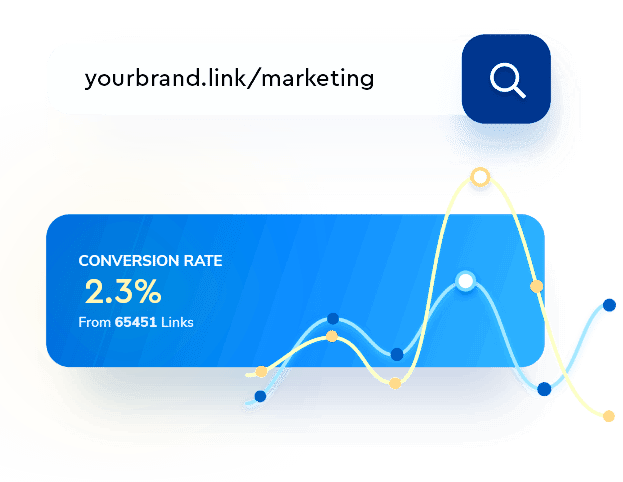
Software-as-a-service (SaaS) companies
- Offer additional revenue streams: Expand your product portfolio with white-labeled versions of your core SaaS offering.
- Partner with other businesses: Develop strategic partnerships by offering white-labeled solutions to complementary businesses.
- Reach new markets: Enter new markets by white-labeling your SaaS product for regional or niche markets.
Web design and development firms
- Provide a detailed solution to clients, including website design and development, and much more.This allows web design firms to become one-stop shops for their clients’ digital needs.
Quick rundown: Best white-label tools to try in 2024
| Sr. | White-label tools for agencies |
| 1. | Replug |
| 2. | ContentStudio |
| 3. | SE Ranking |
| 4. | AllClients |
| 5. | Brevo |
| 6. | Weblium |
| 7. | ClickUp |
| 8. | WordPress |
| 9. | Ecwid |
| 10. | Convrrt |
Key factors to consider when choosing your white-label tool:
Below are some important factors one needs to consider when choosing a white-labeling tool:
- The range of features offered: Check if the given features align with your client’s needs and marketing goals.
- Customization options: Look for providers that allow you to fully brand the tools according to your preferences.
- Pricing and scalability: Choose a plan that fits your budget and allows you to grow as your business expands.
- Ease of use: The tools should be user-friendly for both you and your clients.
- Customer support: Make sure the provider offers reliable support to ensure a smooth user experience.
Overall, white-label marketing can be a game-changer for businesses and agencies looking to expand their services, improve client satisfaction, and gain a competitive edge.

6 Steps to implement in white-label branding
Successfully implementing white-label branding requires careful planning and execution. Here are some essential steps to get started:
- Research and identify opportunities: Analyze market trends and consumer preferences to identify potential white-label opportunities, such as playout software for media companies.
- Find reliable white-label partners: Select reputable manufacturers or service providers with a proven track record of quality and reliability.
- Customize products or services: Work closely with partners to tailor products or services to meet your brand’s specifications and target audience preferences.
- Establish brand guidelines: Clearly define brand guidelines and quality standards to ensure consistency and alignment with your brand identity.
- Launch your product: Consider a soft launch to gather initial feedback and make necessary adjustments. After the soft launch plan a full-scale launch with promotional events and marketing campaigns to create buzz around the new product.
- Monitor performance: Regularly track sales and customer feedback to understand the product’s performance and market acceptance. Be prepared to tweak marketing strategies based on customer feedback and sales data.
Related: Setup white label branded link management with Replug
Is white-labeling right for you?
While white-labeling offers numerous benefits, it’s essential to consider whether it aligns with your business goals and objectives. Before investing in a white-label solution, ask yourself the following questions:
- What are my business’s unique needs and challenges?
- How will white-label marketing software help me address these needs and challenges?
- What are the potential risks and drawbacks of adopting a white-label solution?
- Am I prepared to invest the time and resources required to effectively implement and manage white-label software?
By carefully evaluating these factors, you can determine whether white-label marketing software is the right choice for your business.
FAQs on white-label
What is the difference between private-label and white-label branding?
Private-label branding involves products manufactured exclusively for a specific retailer, while white-label branding allows multiple retailers to sell the same product under their brand names.
Can any business benefit from white-label branding?
While white-label branding can benefit many businesses, it’s essential to assess your specific market, industry, and brand positioning to determine its suitability for your business model.
How can I find trustworthy white-label partners?
Researching and vetting potential white-label partners is crucial. Look for partners with a solid reputation, proven track record, and compatible values and objectives.
Is white-labeling suitable for startups?
Yes, white-label branding can be particularly beneficial for startups looking to enter competitive markets quickly.



















